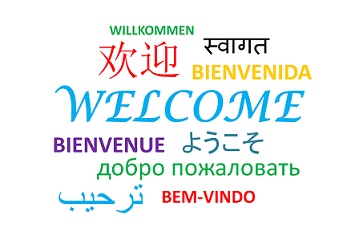
by Judy Vinegar
War is outside of my experience. And yet, like many others in the world, I am riveted and flooded with a feeling of fellowship as I watch the millions of people from the Middle East brave their epic journey to safety in Europe. Yet, once they set foot on these longed-for European shores, many are uncertain what country they are actually in much less knowing which country (if any) will accept them. Once accepted, the grueling challenge of competing for education and jobs while struggling with communication issues rears its ugly head. Their journey to safety has only just begun.
According to a Voice of America news article, most refugees speak Arabic or Pashto – languages that are not common in Europe. As a result, refugees are not able to communicate with the European locals. These migrant scenes strike a bell of recognition in all people who struggle daily with hearing loss:
- At a park in Belgrade, many refugees cannot understand that an aid distribution center nearby is overflowing with supplies.
- At a border crossing in Roske, migrants are struggling to figure out whether they will be able to go to Germany if they register here.
- At a train station in Budapest, refugees are spending hundreds of Euros to buy tickets to Germany when they do not need to do that.
Many people with hearing loss can identify with the refugees’ confusion. Decades ago, I flew home to Cincinnati and unknowingly stepped out of the plane into an airport in Pittsburgh. Apparently the pilot had explained en-route that the plane was rerouting due to weather problems, but I did not hear or understand the message.
People with hearing loss often talk of the tension, anxiety and at times, downright fear that is experienced when they are unable to hear and understand what is going on. Words missed or misinterpreted can sometimes change your life. It can be high risk not knowing what is being said and there is no doubt that the refugees are feeling this as they struggle to understand.
Using the Cell Phone as a Personal Translator
The absolute necessity to communicate is taking center stage during this epic migration crisis. Besides relying heavily on their cell phones to navigate border crossings and as pathfinders to the west, refugees are using apps like Google Translate to help them understand aid workers. With Middle Eastern migrants flocking to Germany, demand for Google’s Arabic-German translation service has surged five-fold. The Google Translation app works like Siri – it translates what you say into another language. (The translation app is not yet totally accurate, but improvements are continuing to refine it). With the Google Translation Word Lens feature, refugees can point the iPhone camera at a sign and watch it translate in front of their eyes.
Communication is so important that there is a race to find a new signal, a new local SIM card or a public wi-fi network. Migrants’ phones (sometimes tethered to a battery pack) are often the only item they carry. Power and wi-fi are in such demand that Greenpeace Hungary set up an even larger tent to provide both. The area is packed with people from the moment it opens to closing time. Some refugees say that the need to communicate can seem as dire as the need for the basic supplies of food and water.
Using the cell phone as a captioning device for people with hearing loss
The need to communicate is just as crucial for people with hearing loss. Smart phone conversations and face to face conversations can be captioned. Check out the following websites for phone compatibility and details:
- Hamilton Captel and Clear Captions: You can listen to your Smart phone conversations while reading word-for-word captions of what’s being said.
- Live Caption, Closed Capp, and Dragon Dictation: Need help understanding your waiter at your favorite restaurant? When you download these apps, the waiter can speak directly into your phone and live captions appear on your Smart phone screen. You can also use the app to talk to people who are deaf or have a severe hearing loss. Speak into your phone and your words are transcribed onto your phone screen for your conversation partner to read. Although these apps are not perfect, they will usually give enough information to improve understanding of the conversation.
- Transcense: This app is currently in development and will transcribe conversations with multiple participants in real time. Group conversations such as business meetings and family dinners are especially difficult for deaf and hard of hearing people. The Transcense app, when installed on several mobile devices, essentially turns them into a distrubuted microphone system. It transcribes multiple voices simultaneously and assigns each speaker a different color bubble in a single scrolling readout. Estimated cost: $360 per year.
Although communication technology is not yet perfect, it is accomplishing what was thought to be impossible just 5 or 10 years ago. Besides the few captioning possibilities that are listed here, there are many other ways that the Smart phone can help people with hearing loss.
The yearning and struggle to communicate, the absolute necessity to communicate, is evident everywhere as people grasp on to these life saving technologies. Obtaining and ensuring communication access is a different kind of war.
What do you think?
If you wish to leave a comment about this article and/or share it with a friend, please click the ‘Leave a comment and/or share‘ link below:
Also be sure to visit our website at www.hearinglosskyhome.org
It is amazing how technology is playing an ever greater part in helping people overcome social barriers and improving safety. Technology is something to be embraced and not to have fear over. If we don’t know how to use it, all we have to do is ask someone to help who does.
LikeLike